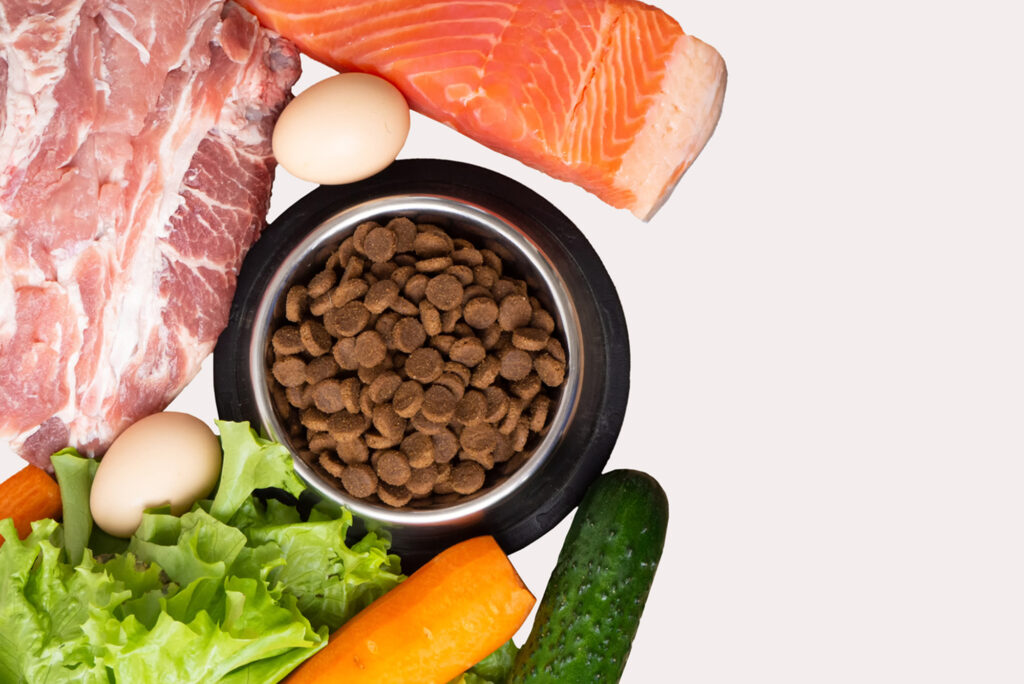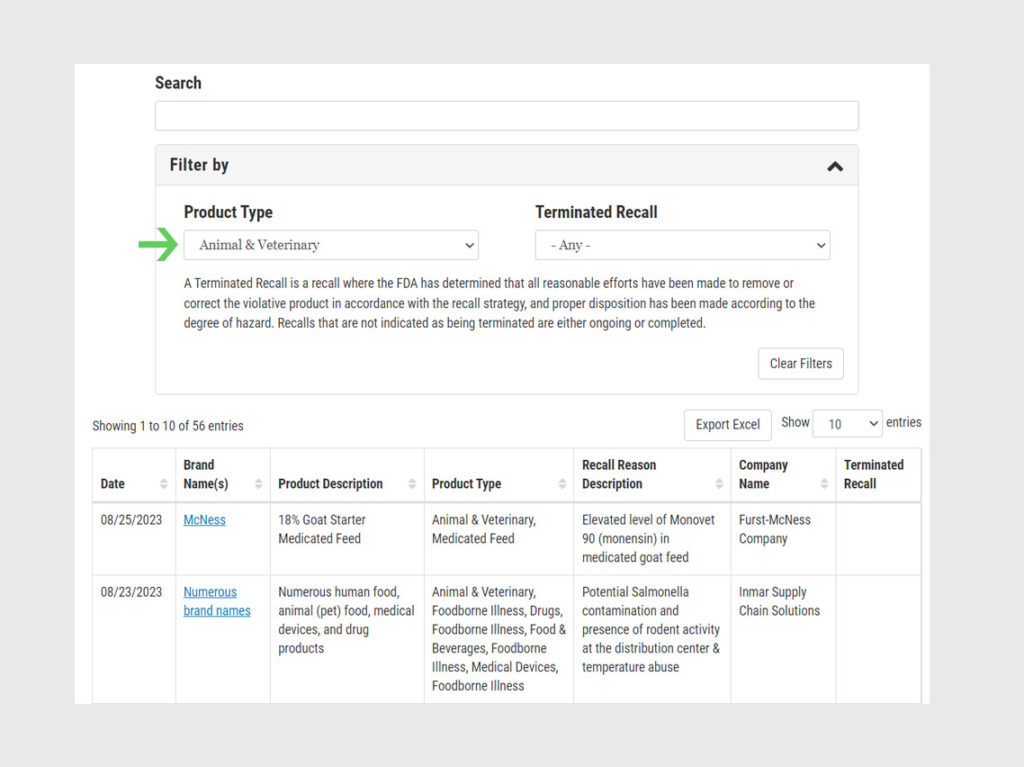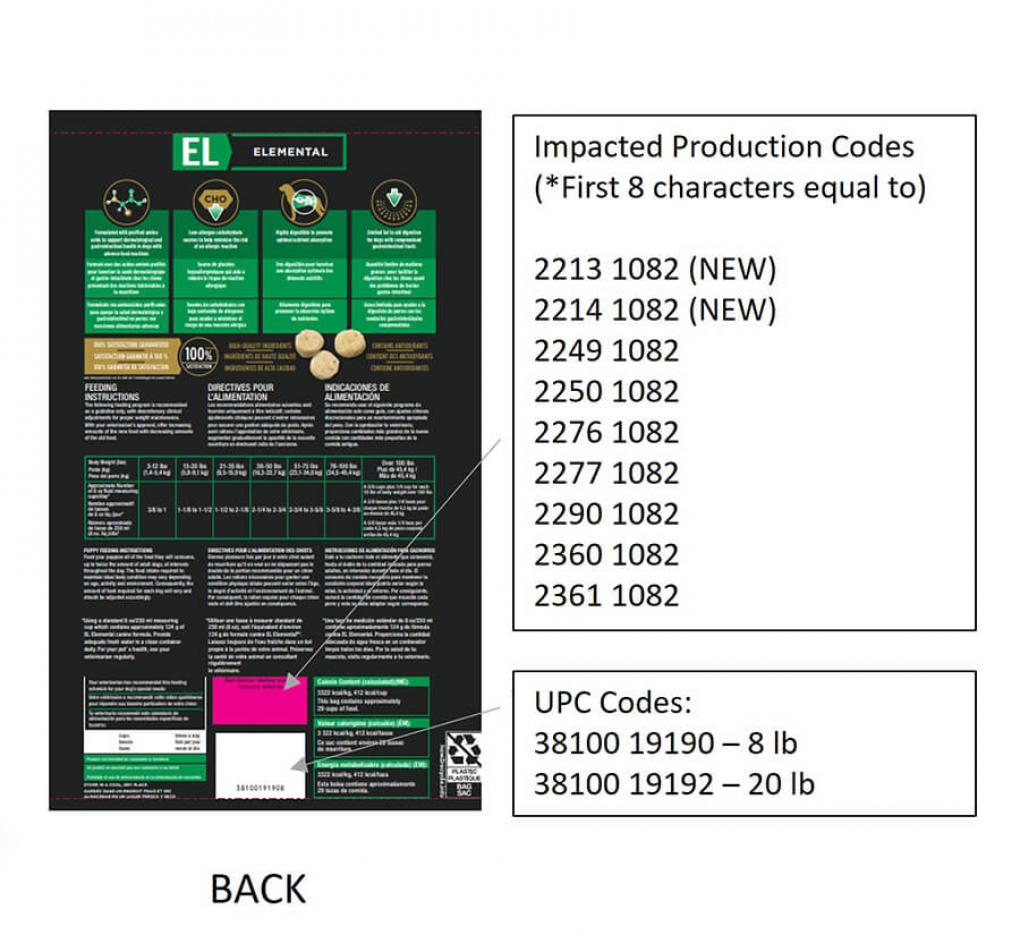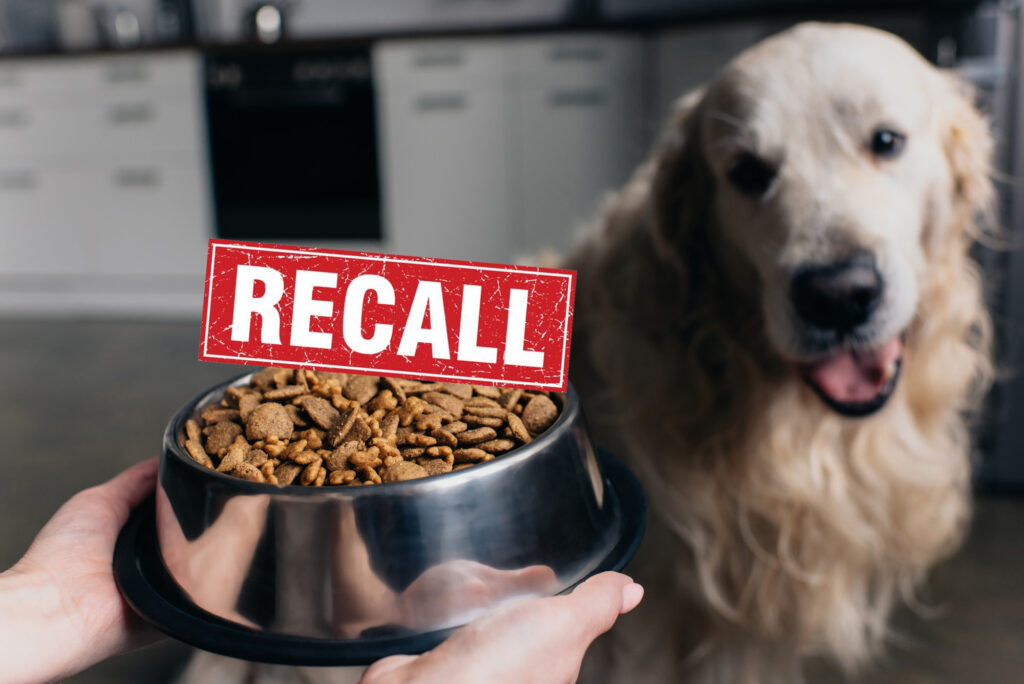In the tumultuous world of pet ownership, few notifications can cause as much anxiety as a dog food recall. It’s a term that pet owners hope they never have to hear, yet it’s vital to understand to ensure the health and well-being of our pets.
But what does this term mean? And why is it so pivotal for pet owners to stay informed about them?
This article aims to demystify the concept of dog food recalls, delve into their significance, and provide necessary resources and strategies to respond effectively when recalls occur.
As we navigate this topic, we’ll discover the common reasons for recalls, their potential implications on your pet’s health, and how you can keep abreast of the latest recall news.
Also, we will look at practical steps to take if a brand your pet consumes is affected by a recall, and preventive measures put in place by dog food companies to avert such issues.
Stick around to learn how you can stay one step ahead in maintaining your pet’s dietary safety in the face of dog food recalls.
What is a Dog Food Recall?
In simple terms, a dog food recall happens when a product is removed from the market due to an identified issue or concern. This could range from anything like a packaging defect to a potential health risk, such as contamination or incorrect labeling.
Contamination can occur in various forms – bacterial, such as salmonella or E. coli, chemical, like high levels of a vitamin or a toxin, or even physical, such as metal fragments. In addition, raw and freeze dried dog foods can have a higher susceptibility of containing bacteria like salmonella.

Incorrect labeling, on the other hand, may involve missing ingredients, inaccurate nutritional information, or even undeclared allergens, all of which could potentially lead to health issues in pets.
The recall may be initiated voluntarily by the pet food company itself as a measure of precaution or compelled by a governmental body like the Food and Drug Administration (FDA) if a significant problem is noticed after the product reaches the market. Dog food recalls serve as a safety net, protecting our pets from potential harm linked to their diet.
Understanding why and how such recalls occur is the first step towards safeguarding the health of your beloved pets. By recognizing these concepts, pet owners can better assess recall alerts, putting them in a position to respond swiftly and effectively when they arise.
The Importance of Dog Food Recalls
The direct correlation between dog food recalls and the health of pets cannot be overstated. Consumption of recalled dog food can lead to a myriad of health problems in pets.
Contaminated food, for instance, can result in foodborne illnesses with symptoms ranging from mild discomfort and diarrhea to more severe conditions including kidney issues or even death in extreme cases.
Identifying potential health problems in pets who’ve ingested recalled food can be challenging. Pet owners should remain vigilant for warning signs such as loss of appetite, vomiting, excessive thirst or urination, lethargy, abnormal behavior, and sudden weight loss.
It’s important to remember that animals may react differently, and not all dogs will exhibit these symptoms, even if they’ve consumed the same contaminated product. If you notice any unusual behavior or signs of discomfort in your pet, contact your veterinarian immediately, especially if you’re aware that your pet’s food has been subject to a recall.
Keeping informed about recalls is pivotal in preventing or mitigating illnesses in pets. It enables pet owners to discontinue feeding the affected food to their pets promptly, reducing the risk and potential impact on their health. Knowledge about dog food recalls is not just about maintaining the quality of your pet’s meals—it’s about safeguarding their health and wellness.
Recent Dog Food Recalls
Keeping an eye out for recent dog food recalls is crucial in maintaining your pet’s health. Brands periodically announce recalls when they detect potential issues, sometimes as minor as labeling errors, or as serious as contamination.
Recently, Purina made a dog food recall for elevated levels of vitamin D in some dog food products which could lead to dogs getting sick.
In 2021, a company called Midwestern Pet Foods which makes brands such as Sportmix and Earthborn had a salmonella contamination in their products which was linked to the deaths of hundreds of dogs.
You should know that there are usually a dozen dog foods recalled each and every year, so staying on top of them might be a little tricky. You should keep an eye on your news feeds and check this FDA recall alert page every so often to ensure your dog isn’t eating contaminated food. Social media and newsletters can also be a good source of recall information.

Above all, staying vigilant and regularly checking for updates can help you react quickly and appropriately, ensuring the ongoing health and safety of your pet.
What to Do if Your Dog’s Food is Recalled
Reacting promptly and appropriately to dog food recalls can dramatically reduce the risk to your pet’s health. The goal is to minimize the consumption of potentially harmful food as much as possible. Here’s what you should do when faced with a recall.
Firstly, stop feeding your pet the recalled product immediately. While it might not be harmful in every case, it’s crucial to err on the side of caution. The next step is to check the recall notice for specific information. Look out for details like lot numbers and expiry dates; this information can help you verify if your purchased product batch is indeed part of the recall.

If your pet shows any signs of illness—such as vomiting, lack of energy, diarrhea, or unusual behavior—contact your vet. It is essential to mention the consumption of recalled food during your visit.
The recall notice typically provides instructions on what to do with the affected product. This could include returning the product to the store or disposing of it in a manner that ensures no other animals can access it.
Finally, transitioning your pet to a new food type should be done under your vet’s guidance. You do have the option of trying to find an untainted batch of the same dog food, but many pet owners would prefer to switch brands entirely.
In that case, you might want to look for something with the same main ingredients and protein source in an effort to cause as little change as possible to your dog’s stomach during the transition period.
Are Some Brands More Susceptible to Recalls?
As pet owners, it is also crucial to understand how different brands fare in terms of recall history. While a recall doesn’t necessarily indicate a chronic problem with a specific brand, a history of frequent recalls might raise a red flag.
To determine a brand’s track record, leveraging the power of the internet is instrumental. Many resources provide information on a brand’s recall history, including the FDA’s recall database. You can also try searching Google for terms like “Purina dog food recalls” and see what comes up.
It’s worth noting that a larger or more popular brand might seem to have more recalls, but keep in mind these massive brands such as Purina produce exponentially more dog food than smaller players in the market. While Pet Food Honesty doesn’t typically recommend or endorse big dog food brands, the fact that they have a higher quantity of recalls doesn’t automatically mean these brands have worse safety standards. The actual frequency of recalls per product is a more accurate measure of a brand’s reliability.
Some smaller brands have been completely dissolved after large cases of recalls. For example, Georgia-based Bailey’s Choice Dog Treats announced a voluntary recall for potential salmonella bacteria which then expanded to cover a wide range of their product offerings. Recalls such as these can severely impact a business of this size.
Aside from a company’s past, their response to recalls can also be telling. Brands that are responsive, transparent, and take immediate action to rectify the issue portray a high level of responsibility towards their customers and the pets under their care.
How to Report a Problem
In some cases, you as a pet owner might notice an issue with your dog’s food before a recall is formally announced. In such situations, you can follow these essential steps:
- First, document the issue thoroughly, noting any abnormal signs in your pet like unusual behavior, illness, or discomfort. Remember to also keep the product packaging, as it contains vital information like batch numbers, manufacturing dates, and other details that may be required during the investigation.
- Next, contact the manufacturer directly to report the problem. Their contact details can usually be found on the product packaging. Be prepared to provide as much information as possible, including your pet’s symptoms, the product’s lot number, and when and where you purchased it.
- In addition to alerting the manufacturer, report the issue to the Food and Drug Administration (FDA). The FDA’s portal for pet food complaints provides a structured and quick way of making these significant reports.
Follow these steps to prompt a speedy investigation into the issue and potentially prevent other pets from consuming harmful food. Your keen observation and prompt reporting can be invaluable in ensuring the safety and health of countless pets, including your own.
Prevention Measures by Companies
Pet food companies employ various measures to minimize the risk of food recalls, valuing the safety of the pets consuming their products. Understanding these measures can boost your confidence in your chosen brand and the quality of the food your pet consumes.
To start with, many companies enforce rigorous quality control checks at every stage of production. These checks aim to catch any potential issues early, well before the product reaches market shelves.
Several brands also invest in third-party testing, in which independent laboratories verify the quality and safety of the food. This additional level of scrutiny bolsters the credibility of the products and provides an added layer of assurance to pet owners.
Many pet food producers follow Good Manufacturing Practices (GMP), standards set by regulatory bodies like the FDA. Compliance with GMP ensures a controlled and consistent production process.
While these preventive measures significantly reduce the risk of recalls, they do not eliminate it entirely. However, they highlight the lengths to which many brands go to ensure the safety and quality of their products. Knowing about these practices can help pet owners make educated choices about which brands to trust with their pets’ health and nutrition.

